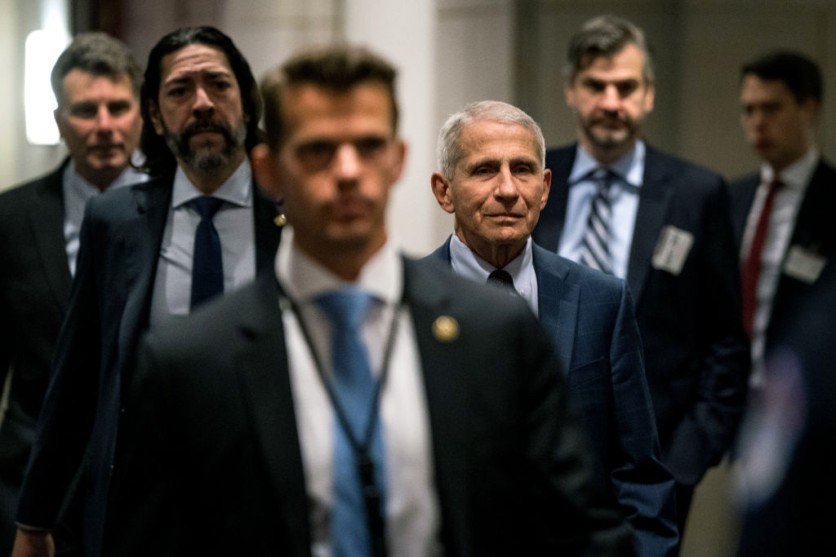World Health Organization (WHO) Director-General Tedros Adhanom Ghebreyesus attributed a spike in COVID-19 transmission to holiday gatherings and the global predominance of the JN.1 strain.
Speaking of the terrible toll recorded, Ghebreyesus emphasized how unacceptable it was that nearly 10,000 COVID-19 deaths transpired in December."Although 10,000 deaths a month is far less than the peak of the pandemic, this level of preventable deaths is not acceptable," the WHO chief told members of the press in the agency's Geneva headquarters, per AP News.
The UN health organization reported that hospital admissions rose by about 42% in approximately 50 countries, especially in Europe and the Americas, prompting Ghebreyesus to encourage increased adherence to treatments and vaccine access.
JN.1 Variant to Continue Spreading
The JN.1 variant, an omicron strain, is now the dominant one all over the world, with existing vaccines still offering some immunity. Maria Van Kerkhove, WHO technical chief for COVID-19, highlighted the increase in respiratory diseases worldwide caused by COVID, along with flu, rhinovirus, and pneumonia. She predicted these trends to persist even during the winter in the northern hemisphere and that there would be a rise in COVID-19 cases, especially over the summer in the southern hemispheres.
"Almost 10,000 deaths from #COVID19 were reported to WHO in December, and there was a 42% increase in hospitalizations and a 62% increase in intensive care units admissions, compared with November.
— World Health Organization (WHO) (@WHO) January 10, 2024
However, these trends are based on data from less than 50 countries, mostly in…
To combat these global health threats, WHO officials suggested vaccination, wearing masks, and ensuring proper ventilation in indoor spaces. Dr. Michael Ryan, the head of emergencies at WHO, said that while vaccines may not stop one from getting infected with coronavirus, they significantly decrease the chances of landing in a hospital or even dying.
In the United States, recent data from the CDC shows that numerous individuals contracted sickness, mainly flu and respiratory infections; 38 states have indicated high or very high rates of respiratory illnesses, such as COVID-19, RSV, and other viruses, per USA Today.
Although COVID-19-related deaths, hospitalizations, and emergency room visits increased, the CDC noted that the figures were not as high as in previous years. The JN.1 variant accounted for almost 61% of cases in the US, with the CDC highlighting its potential for easier spread.
Both the WHO and the CDC advocated preventive measures, including vaccination, mask-wearing, and ensuring adequate indoor ventilation, to combat the transmission of various viruses amid the challenges posed by widespread illnesses and the dominance of the JN.1 variant.
Fauci Admits Social Distancing Not Based on Science
In a related update, Dr. Anthony Fauci, a former White House medical consultant, faced 14 hours during questioning from the House Select Subcommittee on the Coronavirus Pandemic. He eventually admited that some of the recommendations issued by authorities concerning fighting against the COVID-19 pandemic, such as adherence to the "six feet" social distancing rule, may not be based on robust scientific principles.

Dr. Anthony Fauci, the former head of the National Institute of Allergy and Infectious Diseases, arrives at the U.S Capitol for the first of two days of interviews before of the Select Subcommittee on the Coronavirus Pandemic on January 8, 2024 in Washington, DC.
Fauci said the strength of distance recommendations "just sort of appeared," and there might be a lack of scientific data on this topic. He also admitted that the lab leak hypothesis on COVID-19 is not a conspiracy theory, as per a report from the Hindustan Times. The ex-White House health adviser worried that his promoted policies might lead to future vaccine hesitancy.
The chairman of the committee, Rep. Brad Wenstrup, emphasized views on how future pandemic responses must be based on proper scientific effects and closed data while shining light on system failures in the public health sector.

ⓒ 2025 TECHTIMES.com All rights reserved. Do not reproduce without permission.




